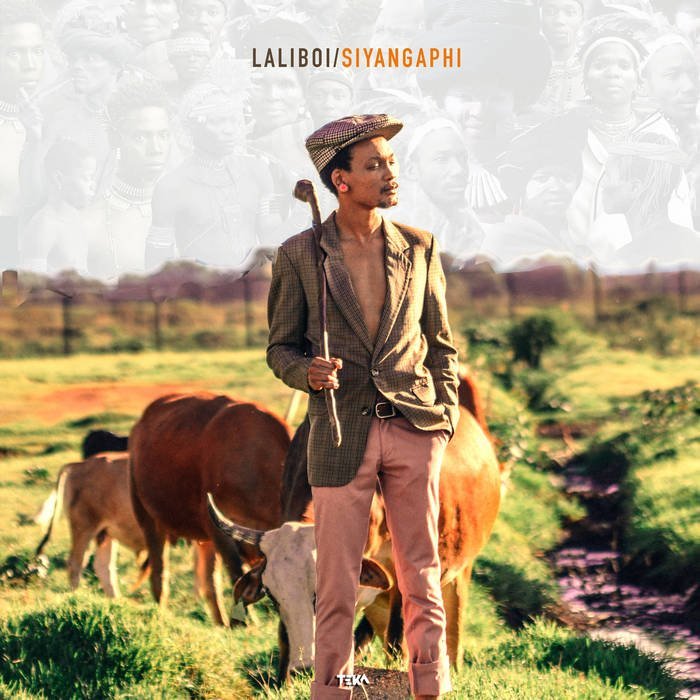‘History doesn’t repeat itself but it often rhymes’. At the beginning of the 20th century in South Africa, the ownership of the cultivable land was transferred from five million Africans to one million Europeans. When the native population was banished from the towns and stuck in limbo, the obvious question on their lips was: “Siyangaphi?” (Where do we go?)
A century later, Vosloorus-based multi-instrumentalist cum vocalist Siphosenkosi Nkodlwane aka LaliBoi (‘rural boy’), a great-grandson of Xhosa author W.K. Tamsanqa, ponders his nation’s problematic past on Siyangaphi, his debut album coming out on Joburg powerhouse Teka Records, and what the future has in store for the Xhosa. No easy feat by any means.
With polymath producer Spoek Mathambo on board, who is equally at home with polished Nelspruit house or no-frills Township Tech, Nkodlwane is in good company. Siyangaphi’s textured tapestry combines fuzzy electric pianos and rich bass guitars with samples of Kippie Moeketsi and Sathima Bea Benjamin. At times the medley of incongruous styles – the funky house ‘Somandla’ and nu-jazzy ‘Angazi Kanjani’ – pushes the album too far from the traditional elements. Yet the common thread is always Nkodlwane’s nasal twang and toasty flow, 99% of it in Township Zulu and Xhosa with its unique rhythmic element: the click consonants.
Whenever Siyangaphi hits the sweet spot between urban and traditional, the result is an utter joy. Undenzantoni, a melancholic dancehall track lead by Smangaliso ‘Smash’ Mfula’s vocals and Nkodlwane’s weeping MIDI phrases pave the way for the gnawa riffs of the frenetic Mayibuye! and Deuteronomy 28’s celestial choir, which – against the colonial backdrop – is dripping with irony. “When the missionaries came to Africa they had the Bible and we had the land”, Desmond Tutu famously said. “They said ‘Let us pray.’ We closed our eyes. When we opened them we had the Bible and they had the land”.
As any survivor or psychologist will tell you, when faced with a traumatic past, we have two options: we either keep repeating the victimhood narrative or rewrite our story and rise above it. After Siyangaphi, there are no points for guessing what LaliBoi does.


